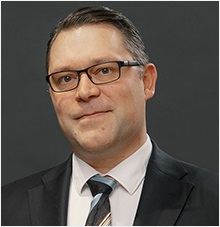
Finland
Legal professional privilege in the context of civil litigation and criminal proceedings
Legal professional privilege in Finland is embodied in the provisions of the Code of Judicial Procedure (4/1734), Advocates Act (496/1958) and the Licensed Legal Counsel Act (715/2011), each as amended, concerning legal advisors’ confidentiality obligations and evidence production in legal proceedings. The extent of confidentiality obligations and prohibitions to testify vary depending on the lawyer’s tasks in connection with which confidential information has been obtained. There also exists a differentiation between advocates, licensed legal counsel and other lawyers. However, this differentiation is of minor importance in the context of civil and criminal litigation as principally only advocates and licensed legal counsel may act as attorney or counsel in legal proceedings.
Confidentiality
Section 5c of the Advocates Act provides that an advocate or their assistant shall not without due permission disclose the secrets of an individual or a family or a business, or professional secret which has come to their knowledge in the course of the advocate’s professional activities. Any information thereby obtained shall be kept secret regardless of whether or not it has been acquired in connection with tasks relating to legal proceedings. A similar provision is included in the Licensed Legal Counsel Act.
According to chapter 15, section 17 of the Code of Judicial Procedure, an attorney or counsel or an assistant thereof or an interpreter may not without permission disclose the secrets of an individual or a family or a business or professional secret that they have obtained:
- in handling a task related to legal proceedings;
- in providing legal advice on the legal position of their client in a criminal investigation or in other proceedings prior to legal proceedings; or
- in providing legal advice on the initiation of or the avoidance of legal proceedings. Furthermore, chapter 2, section 8 of the Criminal Procedure Act (689/1997) extends this rule to defence counsel and counsel for the injured party in criminal proceedings.
Breaches of statutory confidentiality obligations are punishable by law.
Prohibition to testify
Chapter 17, section 13 of the Code of Judicial Procedure stipulates that an attorney, a counsel or an interpreter may not without permission testify regarding to what they have learned:
- in carrying out a task related to legal proceedings
- in providing legal advice regarding the legal status of the client in a criminal investigation; or in another procedure prior to legal proceedings, or
- in providing legal advice regarding the initiation or the avoidance of legal proceedings.
However, the court may oblige such person to testify if the prosecutor has brought charges for an offence for which the maximum sentence is imprisonment for at least six years. This exception does not apply to the defendant’s attorney, counsel or interpreter.
Furthermore, an advocate, a licensed legal counsel or a public legal aid attorney may not without permission testify on a personal or a family secret or a business or professional secret which they have learned also when carrying out other tasks not related to those mentioned above. Nonetheless, the court may obligate them to testify if the prosecutor has brought charges for an offence for which the maximum sentence is imprisonment for at least six years, or if very important reasons, taking into account the nature of the case, the significance of the testimony for delivering judgment and the consequences of presenting the testimony as well as other circumstances, require testifying.
The obligation to refuse to testify is in force even where the person in question is no longer in the position in which they learned of the circumstance at issue in the testimony.
Where a lawyer would have the right or the obligation to refuse to testify in criminal proceedings, the lawyer also has an equal right or obligation in relation to the criminal investigation concerning the matter. Furthermore, a document may not be confiscated or copied for use as evidence provided that the document can be assumed to contain material on which a lawyer may refuse to testify and the document is in the possession of that lawyer or the person for the benefit of whom the obligation or the right to remain silent has been provided for.
Legal professional privilege in the context of investigations by the antitrust / competition authority
According to section 38 subsection 3 of the Competition Act (948/2011), an undertaking subject to investigation has no obligation to deliver documents to the Finnish Competition and Consumer Authority (the FCCA) which contain confidential correspondence between an external legal consultant and the client. The preparatory works of the Competition Act further clarify that the correspondence must be such that it may have relevance in connection with the fulfilment of the rights of defence of the undertaking. It can be found also in 'FCCA brochure on the inspection of business premises under Section 35 of the Competition Act (2017)' that the above mentioned correspondence must have been exchanged for the purpose of defending the company concerning the restriction of competition under investigation.
According to the preparatory works of the Competition Act, the provision is of an informative nature and corresponds to the principle of legal professional privilege enshrined in the case law of the European Court of Justice which, according to the preparatory works, can be deemed applicable in national investigations concerning competition law infringements. The FCCA has confirmed in the 'FCCA brochure on the inspection of business premises under Section 35 of the Competition Act (2017)' that it takes into account the decisional practice of the courts of the European Union regarding the legal professional privilege.
The Supreme Administrative Court confirmed in its ruling KHO:2019:98 that in an unclear situation the undertaking’s right of defence should be interpreted in a broad manner. The FCCA had attached an e-mail chain from the undertaking responding to the FCCA’s penalty payment proposal, and one of the emails referred to a legal recommendation issued by a law firm. The message also contained a statement from a company representative regarding the recommendation. The e-mail had been forwarded both within the undertaking and to an external party. Despite the fact that the legal recommendation given by external legal counsel to the undertaking (with the purpose of using its right of defence) was forwarded to a third party, the Court concluded that it was protected by legal professional privilege.



